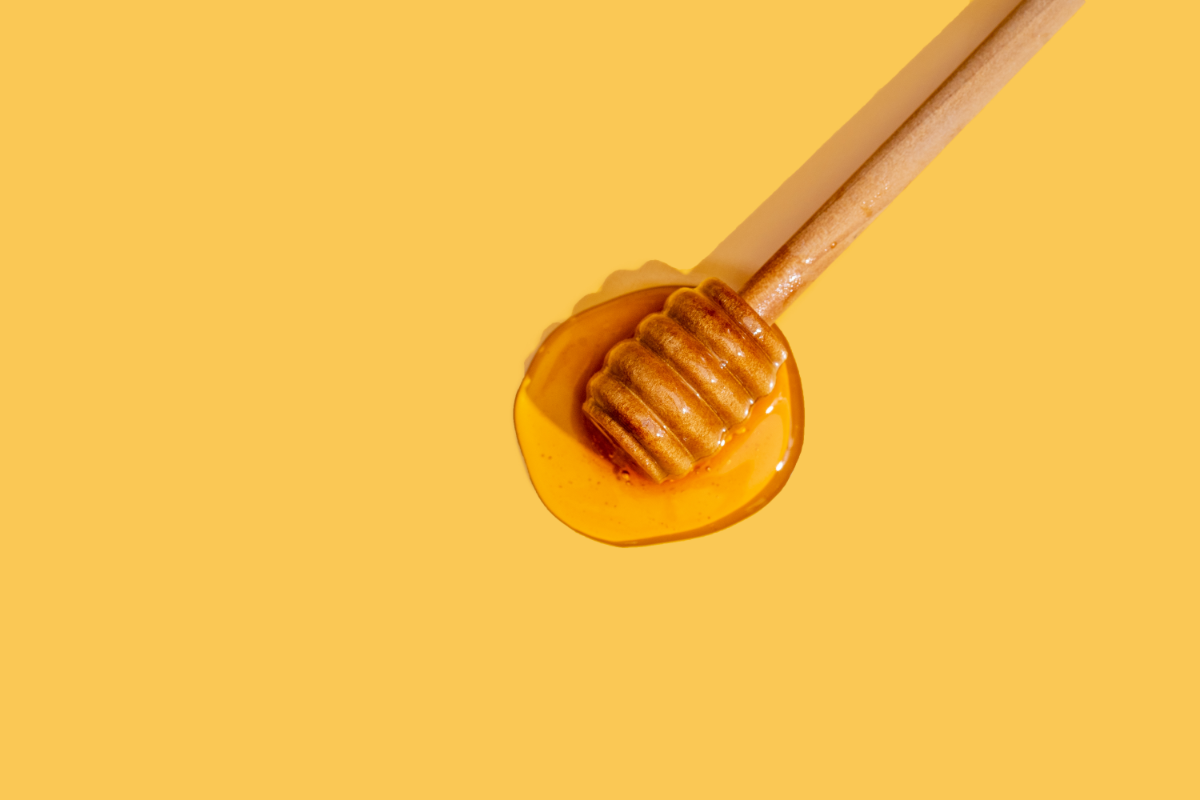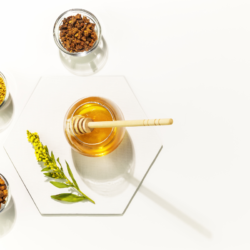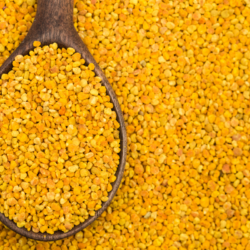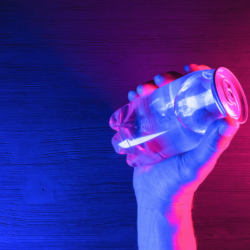Manuka honey is an exceptional natural food produced by bees in New Zealand. Although this honey is appreciated for its sweet and delicious taste, it also offers exceptional medicinal properties. This is because Manuka honey contains a unique active ingredient called methylglyoxal (MGO), which is responsible for its powerful antibacterial properties.
The medicinal properties of Manuka honey were discovered by the Maoris, the indigenous people of New Zealand, who used Manuka honey for centuries for its healing properties. However, it is only recently that Manuka honey has begun to be marketed as a health product throughout the world.
Today, scientific studies have confirmed the beneficial health properties of Manuka honey, making it a must-have product for those looking for natural remedies to improve their health. In this article, we’ll explore the medicinal benefits of Manuka honey, highlighting the reasons why it’s considered one of the most beneficial honeys for health.
Geographical origin of Manuka honey
Manuka honey originates from New Zealand, a country known for its unspoilt nature and unique biodiversity. This honey is produced when bees pollinate the Manuka tree, a wild shrub (Leptospermum scoparium) that flourishes in the remote and wild regions of New Zealand. The special climate and ecology of these regions give Manuka honey distinct qualities that are found nowhere else in the world.
Historical background
The use of Manuka honey dates back centuries to the Maoris, the indigenous people of New Zealand. For them, Manuka was a precious medicinal plant, used both for its healing properties and in various rituals. They used honey for its antiseptic and healing properties, particularly to treat wounds, burns and skin infections.
With the arrival of European settlers and the discovery of New Zealand by the outside world, Manuka honey began to gain popularity beyond its traditional borders. However, it is only in recent decades that scientific research has begun to validate and explain the unique properties of this honey, leading to worldwide recognition and appreciation.
Today, Manuka honey is appreciated not only for its therapeutic benefits, but also for its unique taste and exceptional quality. It has become a luxury product and is sought after all over the world, while remaining a strong symbol of New Zealand’s natural wealth and Maori cultural heritage.
What is the chemical composition of Manuka honey?
Manuka honey has an exceptional chemical composition that makes it unique from other types of honey. One of its most remarkable characteristics is its high content of methylglyoxal (MGO), an organic compound that contributes greatly to its antibacterial properties. Unlike other honeys, Manuka honey also contains a higher level of dihydroxyacetone, a precursor of MGO, present in the nectar of Manuka flowers.
In addition, it is rich in antioxidants, particularly flavonoids and phenols, which play a crucial role in combating the damage caused by free radicals in the body. This richness in antioxidants gives Manuka honey anti-inflammatory properties and can help boost the immune system.
Antibacterial properties of honey
The antibacterial properties of Manuka honey are exceptional and widely recognised in the medical field. These properties are mainly attributed to its high concentration of MGO. The MGO in Manuka honey is capable of destroying a wide range of pathogenic bacteria, including those resistant to antibiotics.
In addition, Manuka honey acts osmotically, which means it draws water away from bacterial cells, dehydrating them and preventing them from reproducing. This characteristic makes it particularly effective in healing wounds and skin infections, where it creates an unfavourable environment for bacteria to survive.
Another unique aspect of Manuka honey is its low pH, which helps to reduce inflammation and promote healing. Unlike other antibacterial agents that can be harsh on the skin, Manuka honey is gentle and can be applied directly to wounds and skin lesions.
What is Manuka honey used for?
Manuka honey is mainly used to help heal wounds and burns. Studies also show that it is effective in treating other conditions, including:
- Skin conditions such as dermatitis and eczema
- Sore throats and coughs
- Digestive problems
This precious nectar can also help to improve the appearance of the skin. It balances the skin’s PH level. Thanks to its humectant properties, it can moisturise thirsty skin. That’s why honey is increasingly being used in a wide range of cosmetic products, from moisturisers to shampoos and lip care products.
What does science have to say about Manuka honey?
Several recent studies show that this honey can be useful when used on wounds or leg ulcers, as well as for fighting infection and promoting tissue healing. Research also suggests that Manuka honey can help prevent gingivitis and other periodontal diseases by reducing plaque. In some studies, it has been shown to help prevent inflammation of the oesophagus caused by radiation and chemotherapy. Another possible advantage of honey is that, unlike antibiotics, it does not seem to generate resistance in bacteria.
The scientifically recognised benefits of Manuka honey
Manuka honey is beneficial to health in a number of ways. Here are some of the most important benefits:
Treatment of infections
- Effective against a range of pathogens: Manuka honey has been shown to have significant antimicrobial activity against a wide range of pathogens, thanks to its content of methylglyoxal and total phenols.
Immune system support
- Immune support: Its antioxidant and antimicrobial properties potentially support the immune system.
Dermatological uses
The dermatological uses of Manuka honey, particularly in the treatment of skin conditions, are based on its wound-healing and antimicrobial properties. Several scientific studies have explored and confirmed these aspects.
According to a study published in the Central Asian Journal of Global Health, Manuka honey has been scientifically recognised for its antimicrobial and wound-healing properties, and is now used clinically as a topical treatment for wound infections. These properties are attributed to its unique composition, including its high content of methylglyoxal, which plays a key role in its antibacterial effects.
Manuka honey works on wounds and skin lesions in a number of ways. Firstly, it creates a moist environment conducive to healing, which speeds up the tissue regeneration process. Secondly, its antibacterial properties help to prevent and fight infection in open wounds. This is particularly important in the current climate of antibiotic resistance.
Another important property of Manuka honey in dermatology is its anti-inflammatory effect. As inflammation is a common reaction in many skin conditions, Manuka honey can help reduce these symptoms, promoting faster and less painful healing.
It’s also worth noting that Manuka honey can be used on a variety of skin types and conditions, including burns, ulcers, eczema and even acne, thanks to its unique properties.
Digestive benefits
- Aids digestion and gastrointestinal disorders: Potentially beneficial in the management of gastrointestinal disorders thanks to its anti-inflammatory properties.
Oral health benefits
- Gingivitis and dental health: A pilot study suggests a potential role in the treatment of gingivitis and periodontal disease.
Effects on mental well-being
- Reduced stress and improved sleep: soothing properties suggested, requiring further research to confirm.
Benefits for the respiratory system
- Treatment of colds and respiratory problems: Potentially effective in the treatment of respiratory disorders, although further studies are required.
Can Manuka honey be used to treat chickenpox?
According to a recent study, Manuka honey and clover honey demonstrated significant antiviralactivity against the varicella-zoster virus (VZV), responsible for herpes zoster or shingles. The study used different concentrations of honey ranging from 0 to 6% w/v to treat human malignant melanoma cells infected with VZV. The results indicated that both types of honey inhibited VZV with an effective concentration at 50% (EC50) of around 4.5% (w/v).
This finding is particularly relevant for developing countries where access to expensive antivirals is limited. Honey, which is readily available and inexpensive, could be an excellent alternative for treating rashes caused by VZV. In addition, as honey is easy to apply to the skin and has few known side effects, it could be both an effective and accessible treatment option.
It should be noted that these results are based on in vitro studies and do not replace professional medical advice. Before any application, a medical consultation is strongly recommended.
Precautions to be taken
Although Manuka Honey has many properties, it is important to consult a health professional for advice before deciding to use it. In addition, we advise you to research the origin of Manuka Honey before purchasing it. You should avoid using products containing Manuka honey if you are allergic to bees. It could cause a reaction.
The same applies to diabetics, as its high sugar content could raise blood sugar levels. Finally, Manuka honey may in some cases interact with a number of medicines, particularly those used for chemotherapy. It is important to inform your doctor or pharmacist of all the medicines, food supplements and natural remedies you are taking, to avoid any possible interaction.
FAQ
-
Can Manuka honey help relieve allergies?
Manuka honey is not actually a proven remedy for allergies, but it may help relieve allergic symptoms due to its antioxidant and nutrient content.
-
Is Manuka honey safe for diabetics?
Manuka honey has a lower glycaemic index than white sugar, but it still contains sugar and should be consumed in moderation by diabetics.
-
Can Manuka honey be used to treat eczema?
It can be beneficial for the skin, but it is important to consult a health professional before using it to treat eczema.
-
Is Manuka honey safe for pregnant women?
Manuka honey is generally safe for pregnant women, but it is important to consult a healthcare professional before using it.
Read more:
- https://www.ncbi.nlm.nih.gov/pmc/articles/PMC3401066/
- Cent Asian J Glob Health . 2016 Aug 4;5(1):241. doi: 10.5195/cajgh.2016.241. eCollection 2016.
Honey: A Therapeutic Agent for Disorders of the Skin





